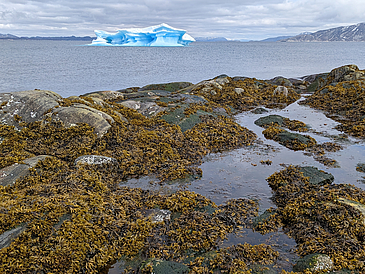University of Bremen Receives €5.5 Million EU Funding for Arctic Research Project
SEA-Quester investigates the carbon cycle in novel polar marine ecosystems that will emerge as a result of climate change. Melting sea ice, changing currents and a warmer ocean are already changing the distribution of species, their behavior and their metabolism. How this will impact marine biodiversity and the functions and services of polar ocean ecosystems, e.g. B. on carbon sequestration but also on fishing yields is not yet exactly known. However, this has potentially major implications for achieving policy goals for biodiversity conservation and climate change mitigation.
SEA-Quester will address these knowledge gaps through a combination of field observations and modeling. Research trips to the fjords and shelf seas around Greenland and Spitsbergen as well as to the Southern Ocean will examine the uptake and storage of carbon on the way from coastal ecosystems (e.g. algae forests) to the open ocean, as biological processes here interact with plankton, fish and soil organisms play an important role in determining the final fate of carbon.
These new insights are not only important for improved modeling of the global ocean, but will also be reflected in new management tools such as determining and mapping carbon storage potential. These new tools are intended to help resolve the conflicts between protection and use of Arctic marine areas, while shedding light on natural carbon sequestration processes.
“As part of SEA-Quester, our team will investigate newly emerging algae ecosystems in previously ice-covered areas,” explains Kai Bischof, Professor of Marine Botany at Department 2 and at the MARUM – Center for Marine Environmental Sciences at the University of Bremen, which has a funding share of approx. 500,000 EUR will be received.
SEA-Quester runs as part of the HorizonEurope program from February 1, 2024 to January 31, 2028 and is a collaboration between the following institutes: Technical University of Denmark (DTU-Aqua – Denmark, lead), University of Bremen & MARUM (Germany) , Greenland Nature Institute, Greenland Climate Research Center, (GINR – Greenland), Alfred Wegener Institute, Helmholtz Center for Polar and Marine Research (AWI – Germany), Leibniz Institute for Baltic Sea Research (IOW – Germany), ABO Academy ( Finland), Institute of Oceanology, Polish Academy of Sciences (IOPAN), GRID-Arendal (Norway), HEREON Helmholtz Center (Germany), and Aarhus University (Denmark).

